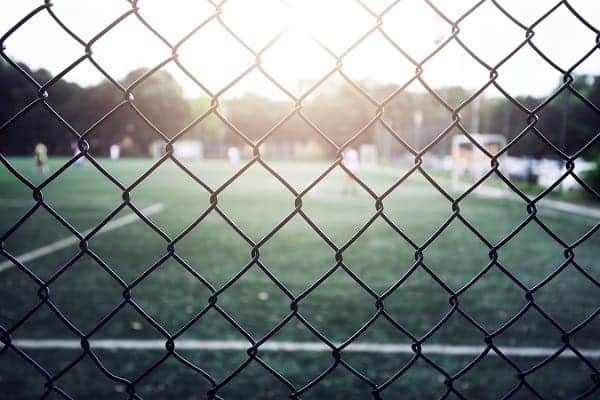Fencing an athletic field or court can be a challenge. Not only do they cover large amounts of area, but the fences themselves have to be suitable to the needs of the players. A fence for a soccer field may be different from a fence for a baseball field, depending on the amount of space involved. Here are some of the major aspects that you need to consider before you commit to a design.
What Is the Purpose of the Fence?
The purpose of the fence is very important. Some fences are designed just to mark off areas for a sport to be played; for instance, you may want to install a casual fence around a soccer field, not to keep the balls in the field but to give players a designated area. These fences can be practically any type of fence, and they don’t need to go all the way around — they just have to suggest a perimeter. For sports like the equestrian arts, you may need a more traditional, wooden fence, which is safer for both the horse and the rider — and is designed to keep the horses in. For sports like baseball or basketball, you may need a chain-link fence that wraps around the entire perimeter.
How High Does the Fence Need to Be?
If your fence is designed only to mark areas, it really doesn’t need to be that high. But if your fence is designed to actually block projectiles, such as baseballs and tennis balls, it may need to be higher — this is especially true if the court is close to buildings or a road. The higher your fence is, the more additional considerations there are; posts will need to be deeper and reinforcements will have to be constructed. For sports such as baseball, only a certain area (the batter’s area) usually has a higher fence. For sports such as tennis, an entire enclosure may need to be built.
How Durable Does the Fence Need to Be?
Certain sports are going to put more wear on a fence than others. For instance, tennis has a higher amount of impacts than many other sports, as balls tend to fly outside of the play area. Baseball, however, tends to send balls towards fences faster — but usually only towards a specific area, such as the backstop. If you need a highly durable fence, it’s usually recommended that you get a chain link fence with a certain metal thickness. The fence will be less flexible but will last longer.
Are you still not sure what type of fence you need? In general, most athletic fields or courts can be appropriately fenced in with a chain link fence, the only real variable is height. Contacting a professional is the fastest way to determine the appropriate build of your athletic fence, in addition to getting a quote on pricing. Contact Rustic Fence today to find out more about your options and to find the fence that is right for your needs.


